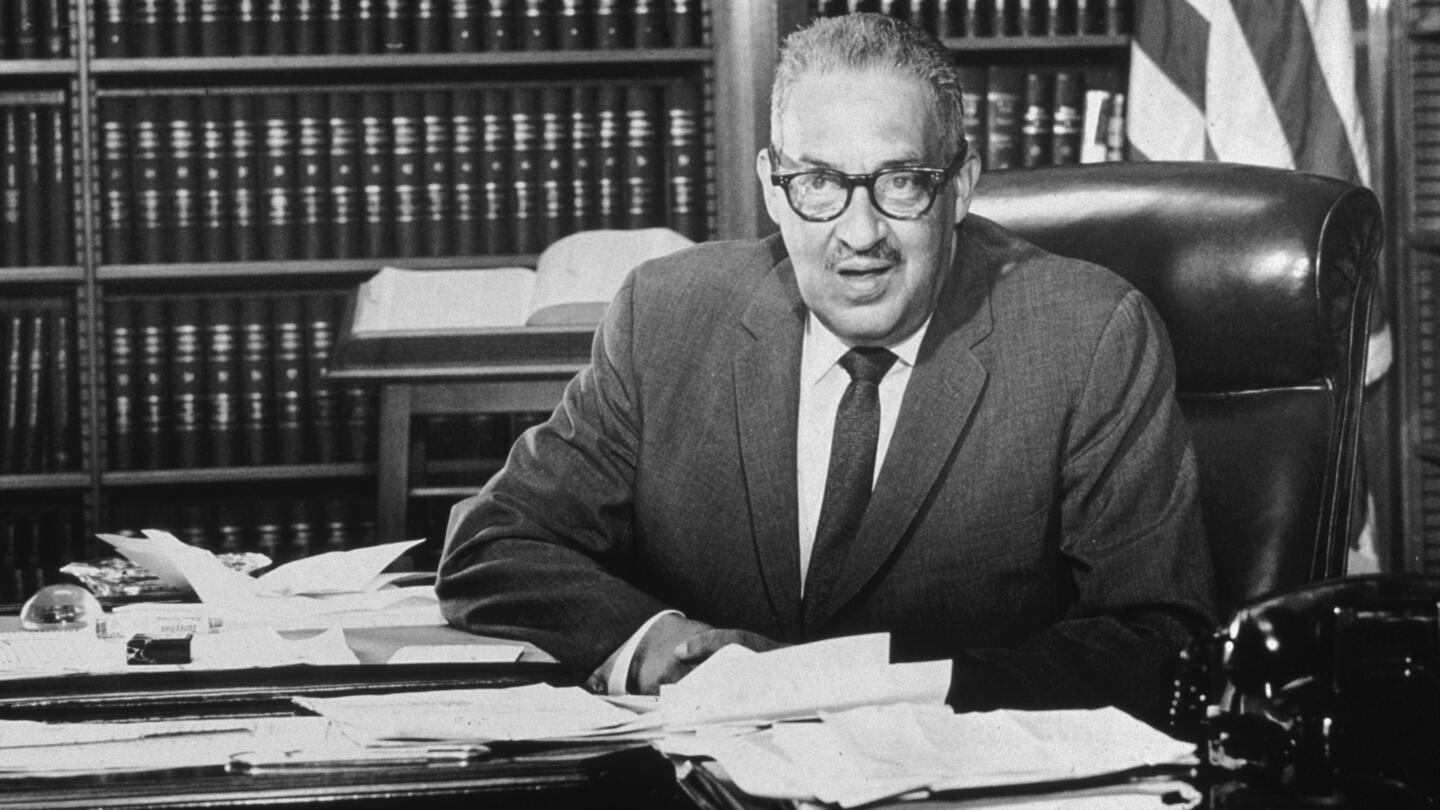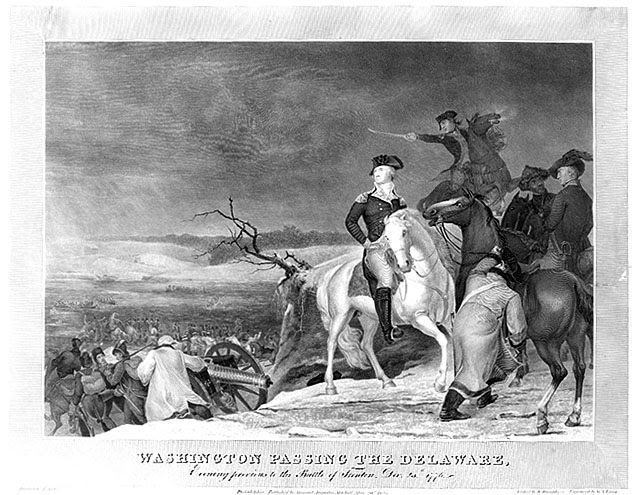
Thurgood Marshall confirmed as Supreme Court justice
On August 30, 1967, Thurgood Marshall becomes the first African American to be confirmed as a Supreme Court justice. He would remain on the Supreme Court for 24 years before retiring for health reasons, leaving a legacy of upholding the rights of the individual as guaranteed by the U.S. Constitution.
From a young age, Marshall seemed destined for a place in the American justice system. His parents instilled in him an appreciation for the Constitution, a feeling that was reinforced by his schoolteachers, who forced him to read the document as punishment for his misbehavior. After graduating from Lincoln University in 1930, Marshall sought admission to the University of Maryland School of Law, but was turned away because of the school’s segregation policy, which effectively forbade blacks from studying with whites. Instead, Marshall attended Howard University Law School, from which he graduated magna cum laude in 1933. (Marshall later successfully sued Maryland School of Law for their unfair admissions policy.)
Setting up a private practice in his home state of Maryland, Marshall quickly established a reputation as a lawyer for the “little man.” In a year’s time, he began working with the Baltimore NAACP (National Association for the Advancement of Colored People), and went on to become the organization’s chief counsel by the time he was 32, in 1940. Over the next two decades, Marshall distinguished himself as one of the country’s leading advocates for individual rights, winning 29 of the 32 cases he argued in front of the Supreme Court, all of which challenged in some way the ‘separate but equal’ doctrine that had been established by the landmark case Plessy v. Ferguson (1896). The high-water mark of Marshall’s career as a litigator came in 1954 with his victory in Brown v. Board of Education of Topeka. In that case, Marshall argued that the ‘separate but equal’ principle was unconstitutional, and designed to keep blacks “as near [slavery] as possible.”
In 1961, Marshall was appointed by then-President John F. Kennedy to the U.S. Court of Appeals for the Second Circuit, a position he held until 1965, when Kennedy’s successor, Lyndon B. Johnson, named him solicitor general. Following the retirement of Justice Tom Clark in 1967, President Johnson appointed Marshall to the Supreme Court, a decision confirmed by the Senate with a 69-11 vote. Over the next 24 years, Justice Marshall came out in favor of abortion rights and against the death penalty, as he continued his tireless commitment to ensuring equitable treatment of individuals—particularly minorities—by state and federal governments

ART, LITERATURE, AND FILM HISTORY
1980
Christopher Cross has his first of two #1 hits with “Sailing”
The music video that famously played during MTV’s first minutes on the air was “Video Killed The Radio Star,” by the British synth-pop duo The Buggles. Four weeks later, a young American singer-songwriter named Christopher Cross completed a meteoric rise from obscurity.
AMERICAN REVOLUTION
1776
Washington refuses British general's letter of reconciliation
On August 30, 1776, General George Washington gives the New York Convention three reasons for the American retreat from Long Island. That same day, he rejects British General William Howe’s second letter of reconciliation.

BLACK HISTORY
1983
Guion S. Bluford becomes the first African American to travel to space
U.S. Air Force Lieutenant Colonel Guion S. Bluford becomes the first African American to travel into space when the space shuttle Challenger lifts off on its third mission. It was the first night launch of a space shuttle, and many people stayed up late to watch the spacecraft.

RUSSIA
1918
Vladimir Lenin shot
After speaking at a factory in Moscow, Soviet leader Vladimir Lenin is shot twice by Fanya Kaplan, a member of the Social Revolutionary party. Lenin was seriously wounded but survived the attack. The assassination attempt set off a wave of reprisals by the Bolsheviks.

VIETNAM WAR
1969
Ho Chi Minh responds to Nixon letter
Ho Chi Minh’s replies to President Nixon’s letter of July 15 is received in Paris. Ho accused the United States of a “war of aggression” against the Vietnamese people, “violating our fundamental national rights” and warned that “the longer the war goes on, the more it becomes.

U.S. PRESIDENTS
1963
Hotline established between Washington and Moscow
On August 30, 1963, John F. Kennedy becomes the first U.S. president to have a direct phone line to the Kremlin in Moscow. The “hotline” was designed to facilitate communication between the president and Soviet premier.

ART, LITERATURE, AND FILM HISTORY
2003
Movie tough guy Charles Bronson dies
On August 30, 2003, the actor Charles Bronson, best known for his tough-guy roles in such films as The Dirty Dozen and the Death Wish franchise, dies at the age of 81 in Los Angeles. Bronson was born Charles Buchinsky on November 3, 1921, in Ehrenfeld, Pennsylvania, to Lithuanian parents.

CRIME
1989
A murdering couple is sentenced to death
Cynthia Coffman and James Marlow are sentenced to death in San Bernardino, California, for the 1986 murder of Corinna Novis. Coffman was the first woman to receive a death sentence in the state since capital punishment was reinstated in 1977. Coffman first met Marlow in May 1986.
INVENTIONS & SCIENCE
2006
California Senate passes Global Warming Solutions Act
On August 30, 2006, the California State Senate passes Assembly Bill (AB) 32—otherwise known as the Global Warming Solutions Act. The law made California the first state in America to place caps on carbon dioxide and other greenhouse gases, including those found in automobile.


Comments
Post a Comment